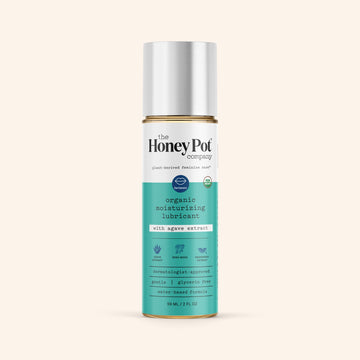Honeypot Trivia Time: What is the most common vaginal infection?
You probably guessed yeast infections and if so, sorry, but you’d be wrong. It’s none other than Bacterial Vaginosis, often shortened to BV. So what is BV? It is a condition that happens when there is an overgrowth of harmful bacteria in the vagina. When this occurs, most women experience BV symptoms like unusual thin, grey or white discharge with or without a strong fishy odor, vaginal itching and burning while urinating.
What causes BV? In healthy vaginas the good vaginal bacteria (Lactobacillus) outnumbers and can fight off the “bad” infection-causing bacteria. It’s a delicate balance, and while doctors do not know exactly what throws it off, there are a few factors that can disrupt the sensitive ecosystem and pH down there like semen/sex, diet, medication, menstruation and more.
Infections happen and are nothing to be ashamed of or embarrassed by, but below are a few BV prevention methods. As they say an ounce of prevention is worth a pound of cure, right?
- Use our all- natural feminine wash EVERY DAY! The Honey Pot Company and this wash was born out of founder’s frustration with her recurrent BV. Her ancestors gave her the ingredients to heal herself with this wash, which is now available to you.
- To prevent BV symptoms, avoid scented or perfumed feminine hygiene products.
- Use a condom every time you have sex. See some more of our tips for reducing bacteria during and after sex Also, If you have any BV symptoms or are treating it, abstain from sex until it clears up.
- Always wipe from front to back after using the bathroom or when using our feminine wipes to reduce the spread of bacteria.
While these are our suggestions for BV prevention, every honeypot is different. BV cures are available, so your gynecologist can help to guide you with the best course of treatment for you, especially in cases of recurrent BV. Untreated bacterial vaginosis could increase your risk for STIs and Pelvic Inflammatory Disease (PID) so it’s always best to consult with your doctor about available BV remedies.






